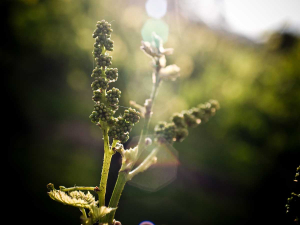The impacts of Cyclone Gabrielle on the wine industry will be long lasting, says Mark Thompson, Chief Winemaker at GisVin and Chair of Gisborne Winegrowers Association.
Like Hawke's Bay, Gisborne receieved about two and a half times the long-term average rainfall for the three months up to 18 April, including the storm event that meant some vineyards could not be accessed for harvest, while others suffered impacts to fruit quality and quantity.
Meanwhile the cyclone-destroyed road between Gisborne and Hawke's Bay meant juice destined for Hawke's Bay wineries, or further south, could not be reliably transported. "So we ended up having to make the wines for them at GisVin and then send it out as finished wine, which is what we're doing at the moment," Mark says in mid-May.
He estimates Gisborne lost 40% of its crop to the weather event. For GisVin, unharvested fruit was destined for big tanks, while the juicing contracts were for small volumes, "so we have had literally no tank space up until this week when we have started moving wine out". That's meant "huge amounts of shuffling and logistics", he says. "And winery managers pulling what's left of their hair out." With hindsight, many in Gisborne and Hawke's Bay will be wondering whether it was worth battling to get compromised fruit in the wake of the storm, he adds. "Seriously, I think we would just leave them on the vine, for the amount of extra money and heartache it cost us."
There are some "great good new stories" amid the later ripening varieties, including Chardonnay and some reds that have been "brilliant", Mark says. "But you cannot take away from the fact that you have a huge amount of compromised aromatic whites." Like many of the country's wine regins, Gisborne growers are very, very happy" about the switch to El Niño, hoping for a classic east coast season in 2024.





